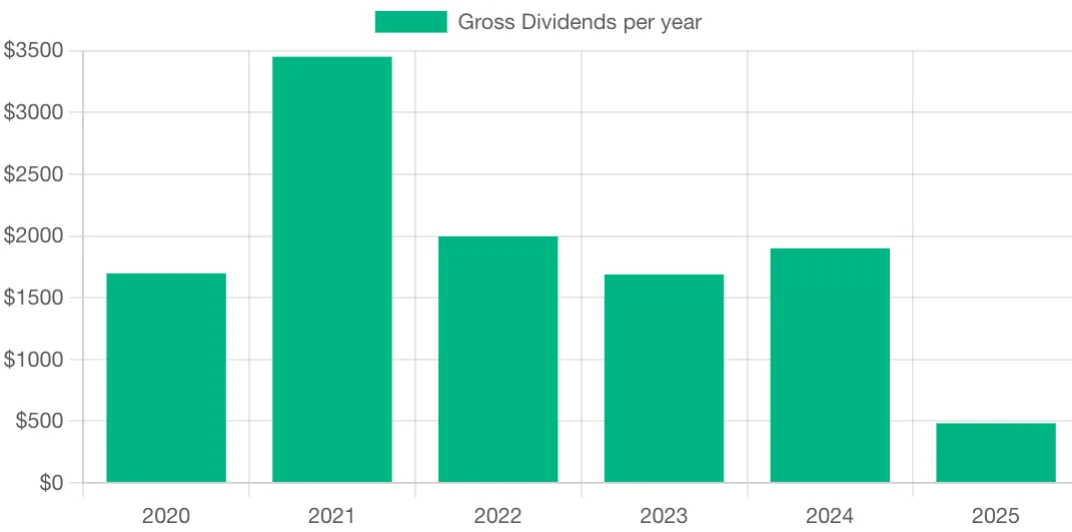Falling Australian house prices could put the share prices of big ASX banks like Commonwealth Bank of Australia (ASX: CBA) under pressure.
CoreLogic is one of the country’s leading property data providers with coverage of more than 98% of the Australian property market. Every month it releases the monthly change of house prices across the capital cities and the rest of the country.
Australian House Prices March 2019
The headline is that national house prices declined 0.6% during March 2019 to a median value of $524,149, following on from last month’s declines. Over the past year national house prices have declined 6.9% and it has been a decline of 7.4% since peaking in October 2017.
Most of the attention is focused on the two largest Australian cities. Sydney house prices dropped 0.9% in March 2019 and are down 10.9% over the past year. Meanwhile Melbourne house prices dropped 0.8% and are down 9.8% over the past year.
The house price falls were felt in most major cities last month. Brisbane prices dropped 0.6%, Adelaide prices fell 0.2%, Perth prices declined 0.4% and Darwin house prices fell 0.6%.
Canberra escaped the negativity where prices were flat and Hobart continues its impressive streak with prices up 0.6% over the month.
Mr Tim Lawless, Head of Research at Corelogic, said, “While the pace of falls has slowed in March, the scope of the downturn has become more geographically widespread.”
What will this do for ASX bank share prices?
The big banks of Westpac Banking Corp (ASX: WBC), Australia and New Zealand Banking Group (ASX: ANZ), National Australia Bank Ltd (ASX: NAB) and Commonwealth Bank are all heavily linked to the Australian housing market.
In-fact you can add other ASX financial businesses into the mix that could be affected like Bank of Queensland Limited (ASX: BOQ), Bendigo and Adelaide Bank Ltd (ASX: BEN) and MyState Limited (ASX: MYS).
Australia is addicted to property, and some of profit-making may have gone too far, as we learned in the Royal Commission.
As long as people keep paying their mortgage payments then the declining property prices hopefully won’t be a huge problem, however there could be a negative wealth effect if people see their house continuing to drop in value.
If bank loans start going bad it could be pretty bad for bank profits and the share prices.
That’s why I think it might be better to invest in an uncorrelated ASX growth share instead, such as the ones revealed in the free report below.
[ls_content_block id=”18457″ para=”paragraphs”]








